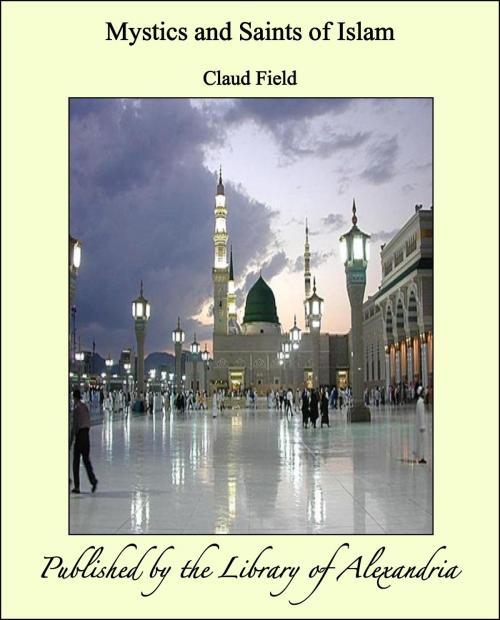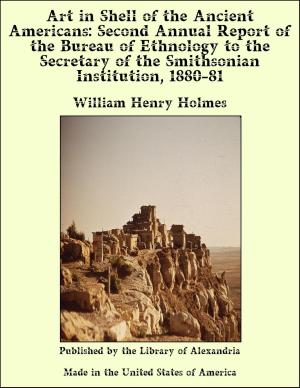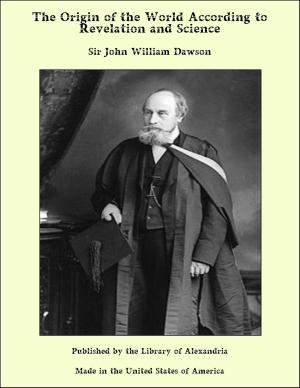Mystics and Saints of Islam
Nonfiction, Religion & Spirituality, New Age, History, Fiction & Literature| Author: | Claud Field | ISBN: | 9781465560315 |
| Publisher: | Library of Alexandria | Publication: | July 29, 2009 |
| Imprint: | Library of Alexandria | Language: | English |
| Author: | Claud Field |
| ISBN: | 9781465560315 |
| Publisher: | Library of Alexandria |
| Publication: | July 29, 2009 |
| Imprint: | Library of Alexandria |
| Language: | English |
It is a custom in some quarters to represent Mohammadan mysticism as merely a late importation into Islam, and an altogether alien element in it. But however much later Islamic mysticism may have derived from Christian, Neo-platonic, and Buddhist sources, there is little doubt that the roots of mysticism are to be found in the Koran itself. The following verse is an instance: "God is the Light of the heavens and the earth. His light is like a niche in which is a lamp, the lamp encased in glass—the glass as it were a glistening star. From a blessed tree is it lighted, the olive neither of the East nor of the West, whose oil would well nigh shine out even though fire touched it not! It is light upon light!" (Koran Sura 24). Indeed it seems strange to accord the title of "a practical mystic" to Cromwell and to deny it to Mohammad, whose proclivity for religious meditation was so strong that the Arabs used to say "Muhammad is in love with his Maker,"1 and whose sense of the "terror of the Lord" was so intense that it turned his hair prematurely white. Many of the reported sayings of the Early Companions of Muhammad show that they shared this terror. "Verily, you shall see hell, you shall see it with the eye of certainty" says the Koran, and they thought it very probable. Thus Ali exclaimed "Alas for the shortness of the provision and the terrors of the way!" Abu'l Darda said "If ye knew what ye shall see after death, ye would not eat nor drink, and I wish that I were a tree that is lopped and then devoured."2 This "fear of the Lord" led naturally to an almost fierce asceticism. Abu Bekr and Ali both founded communities of ascetics,3 and during the first and second centuries of Islam there were many orthodox mystics. Professor Nicholson in the work just quoted, rightly says "I do not think that we need look beyond Islam for the origin of the Sufi doctrines.... The early Sufis are still on orthodox ground, their relation to Islam is not unlike that of the mediæval Spanish mystics to the Roman Catholic Church." The following sketches are for the most part translations of papers by continental scholars such as Alfred Von Kremer, Pavet de Courteille, and A.F. Mehren. The essays on Ghazzali and Jalaluddin Rumi are, however, founded on original study of those writers. The translator hopes a wholesome tonic may be found in some of these Moslem mystics at a time when many "Christian" pulpits and presses seem anxious to dilute Christianity "into a presumptuous and effeminate love which never knew fear."4
It is a custom in some quarters to represent Mohammadan mysticism as merely a late importation into Islam, and an altogether alien element in it. But however much later Islamic mysticism may have derived from Christian, Neo-platonic, and Buddhist sources, there is little doubt that the roots of mysticism are to be found in the Koran itself. The following verse is an instance: "God is the Light of the heavens and the earth. His light is like a niche in which is a lamp, the lamp encased in glass—the glass as it were a glistening star. From a blessed tree is it lighted, the olive neither of the East nor of the West, whose oil would well nigh shine out even though fire touched it not! It is light upon light!" (Koran Sura 24). Indeed it seems strange to accord the title of "a practical mystic" to Cromwell and to deny it to Mohammad, whose proclivity for religious meditation was so strong that the Arabs used to say "Muhammad is in love with his Maker,"1 and whose sense of the "terror of the Lord" was so intense that it turned his hair prematurely white. Many of the reported sayings of the Early Companions of Muhammad show that they shared this terror. "Verily, you shall see hell, you shall see it with the eye of certainty" says the Koran, and they thought it very probable. Thus Ali exclaimed "Alas for the shortness of the provision and the terrors of the way!" Abu'l Darda said "If ye knew what ye shall see after death, ye would not eat nor drink, and I wish that I were a tree that is lopped and then devoured."2 This "fear of the Lord" led naturally to an almost fierce asceticism. Abu Bekr and Ali both founded communities of ascetics,3 and during the first and second centuries of Islam there were many orthodox mystics. Professor Nicholson in the work just quoted, rightly says "I do not think that we need look beyond Islam for the origin of the Sufi doctrines.... The early Sufis are still on orthodox ground, their relation to Islam is not unlike that of the mediæval Spanish mystics to the Roman Catholic Church." The following sketches are for the most part translations of papers by continental scholars such as Alfred Von Kremer, Pavet de Courteille, and A.F. Mehren. The essays on Ghazzali and Jalaluddin Rumi are, however, founded on original study of those writers. The translator hopes a wholesome tonic may be found in some of these Moslem mystics at a time when many "Christian" pulpits and presses seem anxious to dilute Christianity "into a presumptuous and effeminate love which never knew fear."4















